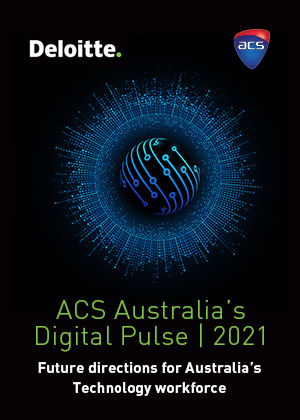Deloitte Access Economics expects demand for working from home to continue, with a consequent need for better digital skills. The technology workforce grew by 4.3% in Australia and a remarkable 10% in NSW.
Computing was the growth area for university degrees in 2020. The report identifies programming as still in demand by employers, particularly SQL and Java, and also DevOps (which is not a language). Employers also continue to ask for the usual soft skills: communication (human to human, not computer to computer), teamwork and problem solving.
Deloitte Access Economics identifies Artificial Intelligence (AI) as an area in demand. The report notes there is ground to be made up with less than a third female IT staff, compared to about half in professional, scientific and technical jobs.
The report argues for increased professionalism of the technology workforce. As the report notes, this is typically done through higher education degrees. However, I suggest we will see a continuing trend to more flexible programs, integrating work experience and many small specialist qualifications which can be assembled into a degree.
Deloitte Access Economics take a pessimistic view suggesting international travel restrictions will continue until 2024. They suggest this will force more reliance on those already in Australia obtaining qualifications to fill jobs. However, I suggest the lock-downs have shown that many jobs can be done from anywhere, with the right tools and training. The student teams I help teach, who are undertaking group projects are gaining valuable experience learning to work in virtual teams of people from different cultures, for clients they have never met in person.
A difficult issue the report raises is how IT fits in the training of other professions. This is an area in which I suggest IT educators should take the lead, being able to tailor curricular for different needs of disciplines.
An even more difficult issue raised by Deloitte Access Economics is how to have more women studying IT. STEM content in schools may help, as the report suggests, but perhaps changes are needed to the definition of what an computer professional is and does. That computing has an identity problem did not occur to me until I studied education as an international student. Here I went from being part of the the dominant workplace culture to a minority.
ps: I am a member of the ACS Profession Advisory Board.

No comments:
Post a Comment